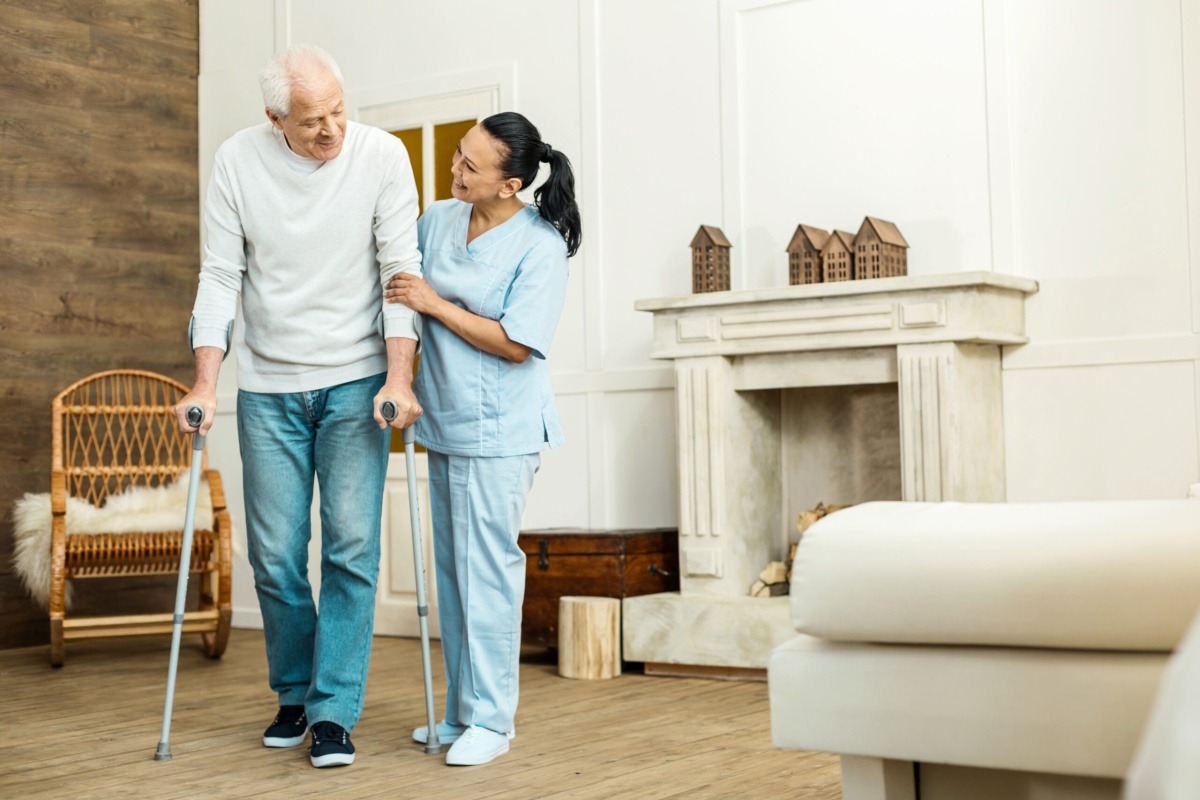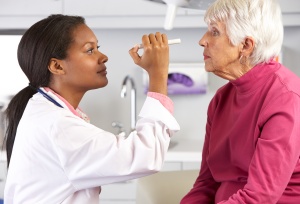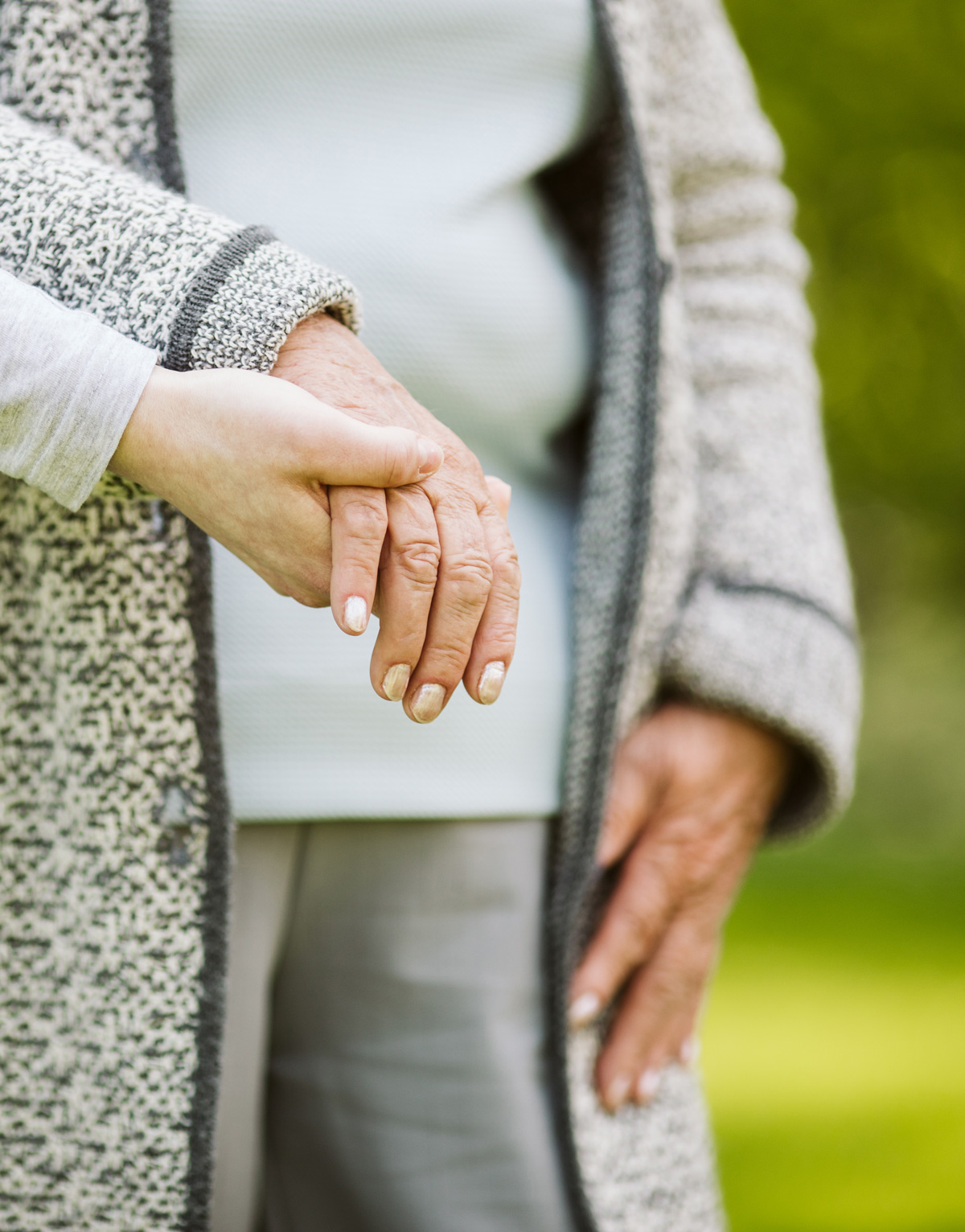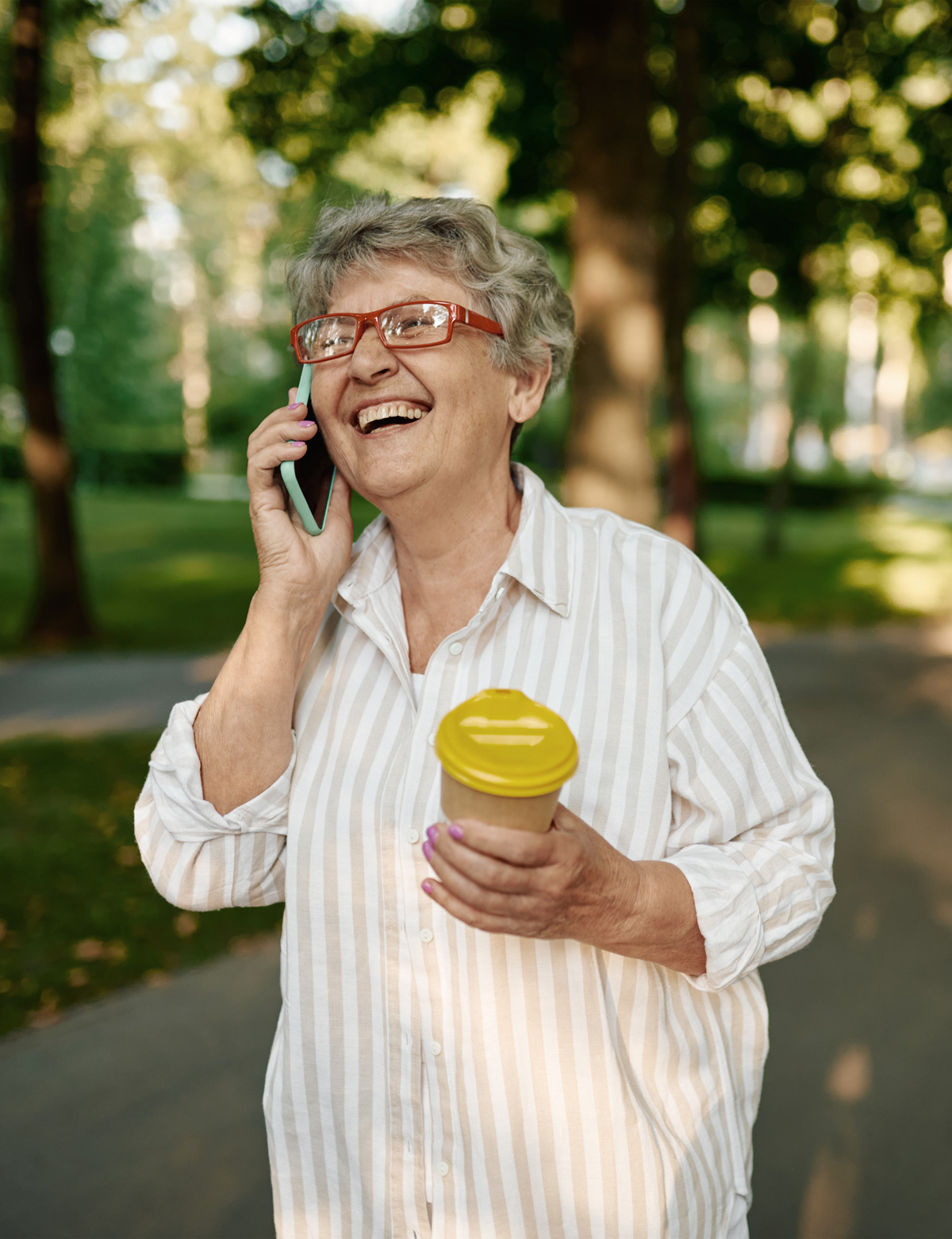It’s incredibly important that we take any steps to reduce the risk of falls for seniors, and that’s the focus of this series on Falls and Fall Mitigation. Fall injuries among seniors result in hospitalization for more than 800,000 patients each year. Most falling hospitalizations are due to hip and skull fractures.[1] One in five seniors who must be hospitalized for a hip fracture will die within a year.[2] Preventing falls doesn’t just improve quality of life, it saves lives.[3],[4]
There are many causes of a fall (e.g., vision loss, vitamin deficiencies, and some medicines), but hearing loss is an overlooked cause that may be avoided by having your residents visit their hearing care providers.
Hearing Loss and Falls
It might surprise you, but even mild hearing loss can drastically increase the risk of a fall. Doctors Frank Lin, M.D., Ph.D. of Johns Hopkins University and Luigi Ferrucci, M.D., Ph.D. of the National Institute on Aging found that even a mild hearing loss of 25 decibels increased the risk of a fall by threefold.[5] Further, for every additional 10-decibel loss in hearing, fall risks increased another 40 percent.[6] This research could be instrumental in reducing fall risk, especially as half of the seniors 85 or older have a hearing impairment.[7] Additionally, only 15% of seniors with a hearing impairment currently use a hearing aid.[8] These findings held consistent even when Doctors Lin and Ferrucci removed seniors at a higher risk for falls because of other comorbidities.
There could be several reasons why a loss of hearing increases the risk of a fall. Dr. Lin theorizes that one of the chief reasons is that hearing loss results in an increase in cognitive load. Your cognitive load is the resources your brain has available to devote to simultaneous tasks. Your brain only has a finite amount of resources, so if hearing loss increases your cognitive load, something else has to give, and that could be some of your brain’s ability to process balance, mobility, and/or gait.[9]
The bottom line? If you feel like your resident’s hearing is different, or getting worse, encourage them to speak with an audiologist immediately. If they are having trouble walking, or feel unsteady on their feet, talk to them about your fall concerns. Dr. Michelle Sporn, Aria Care Partners’ Chief Medical Officer for Audiology agreed, adding, “At Aria Care Partners, we’re specialists in ensuring the ear wellness of the seniors under our care. Many of our patients are at risk of a fall for more than just their hearing, but that’s why an annual ear exam is so important. We evaluate the whole function of the ear. If we can address any hearing loss our patients may suffer, we can reduce the chances of a dangerous fall.”
Aria Care Partners is committed to supporting your facility’s fall prevention strategies and residents’ quality of life. We encourage caregivers to reach out to us whenever there’s a concern related to hearing wellness. For more information about falls and fall prevention, see the other articles in Aria’s series on Falls and Fall Risk Mitigation series: 5 Steps to Fall Prevention, Ear Function and Balance, and Vision and Fall Risk. Also, be sure to check out our Facts About Falls Infographic.
 Home Page
Home Page Home Page
Home Page

 Share to Twitter
Share to Twitter
 Share to Linked In
Share to Linked In




